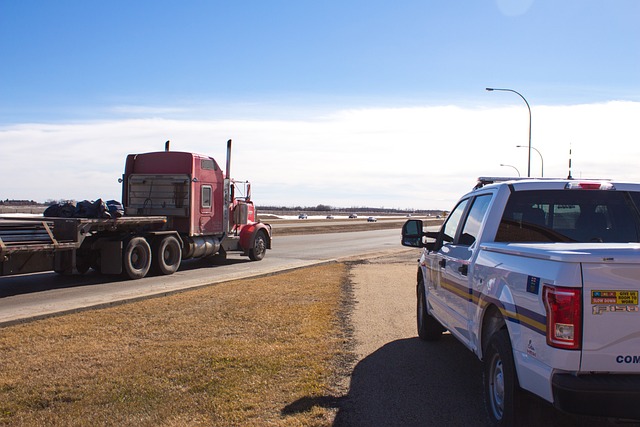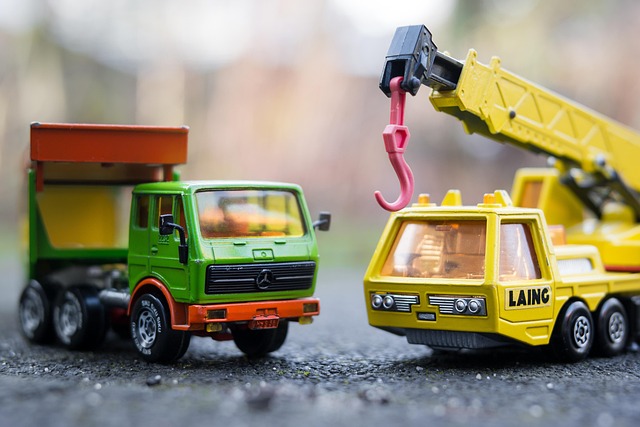Looking to register your car in California? It’s a straightforward process, but understanding the requirements and gathering the right documents is key. First, ensure your vehicle meets state standards. Next, collect essential papers like the title, proof of insurance, and identification. Perform a Vehicle Identification Number (VIN) check at a designated station to verify its authenticity. Then, head to a DMV office to complete the registration, pay fees, and receive your official documents, including a registration certificate and license plate. Don’t skip the VIN verification for a smooth experience.
- Understand the Requirements for Car Registration in California
- Gather Necessary Documents for VIN Verification
- Perform a Vehicle Identification Number (VIN) Check
- Complete the Registration Process at a DMV Office
- Pay the Registration Fees and Receive Your Registration Documents
Understand the Requirements for Car Registration in California

Before registering your car in California, it’s crucial to understand the specific requirements set by the state. One of the primary steps involves verifying the Vehicle Identification Number (VIN) through a process known as VIN verification. This is a critical step that ensures the vehicle’s authenticity and history are accurately checked. In California, the Department of Motor Vehicles (DMV) oversees this process, which includes cross-referencing the VIN with national databases to reveal any previous ownership, accidents, or outstanding issues.
A mobile vin verifier or mobile vin inspection service can simplify this process by offering on-site or remote VIN verification options. These services utilize advanced technology to instantly access a vehicle’s history, providing peace of mind and convenience for California residents looking to register their cars efficiently. By ensuring your car meets all these requirements, you’ll be well on your way to a successful registration process.
Gather Necessary Documents for VIN Verification

Before you begin the registration process, it’s crucial to gather all the essential documents for VIN verification. The Vehicle Identification Number (VIN) is a unique code that identifies your car, and it plays a vital role in the verification process. You’ll need to provide proof of ownership, typically through a title document or a bill of sale. Additionally, ensure you have your vehicle’s registration from the previous state if applicable, as well as any relevant insurance papers.
For a smoother process, consider using a mobile VIN verifier or performing a mobile VIN inspection. These services allow you to verify your car’s information remotely, saving time and effort. Having these documents ready will make registering your car in California an efficient and straightforward task.
Perform a Vehicle Identification Number (VIN) Check

Before you register your car in California, it’s crucial to perform a Vehicle Identification Number (VIN) check. This step is essential for ensuring that the vehicle you’re about to register is legitimate and has not been reported stolen or had its identity altered. A simple VIN verification can be done through various online tools or by contacting the California Department of Motor Vehicles (DMV).
Consider using a mobile vin inspection service or a vin verifier to streamline the process. These services allow for quick and convenient VIN checks, often with real-time data updates. By comparing the information obtained from these platforms with the vehicle’s physical documentation, you can have greater assurance that your car is ready for registration.
Complete the Registration Process at a DMV Office

To complete the registration process for your car in California, you’ll need to visit a DMV office. This is where you’ll officially register your vehicle and obtain the necessary documents. Bring along all required paperwork, including proof of ownership, identification, and insurance. A key step in this process involves undergoing a vin verification check, ensuring the Vehicle Identification Number (VIN) is accurate and matches the details on file.
DMV staff will guide you through the steps, which may include conducting a mobile vin inspection or checking your vehicle’s history to ensure it complies with all regulations. Once everything is in order, they’ll process your registration application, charge the appropriate fees, and provide you with your official California registration documents.
Pay the Registration Fees and Receive Your Registration Documents

After completing your vehicle’s registration application, it’s time to pay the required fees. The cost for registering a car in California varies based on factors such as the type and age of your vehicle. You can typically pay online or at a DMV office using a debit or credit card. Once your payment is processed, you will receive your registration documents, including a registration certificate and a vehicle identification number (VIN) verification report.
This process often involves a VIN inspection to ensure the accuracy of your vehicle’s information. Consider opting for a mobile vin inspection service if you prefer convenience. A mobile vin verifier can come to your location to perform this check, making it easier and more efficient, especially if you have other commitments during regular DMV hours.
Registering a car in California involves understanding specific requirements, gathering essential documents for VIN verification, completing an accurate vehicle identification number (VIN) check, and paying relevant fees. By diligently navigating these steps at a DMV office, you’ll be on your way to securing the necessary registration documents for your new or used vehicle. Remember, proper documentation and an intact VIN are crucial for legal roadworthiness in California.
